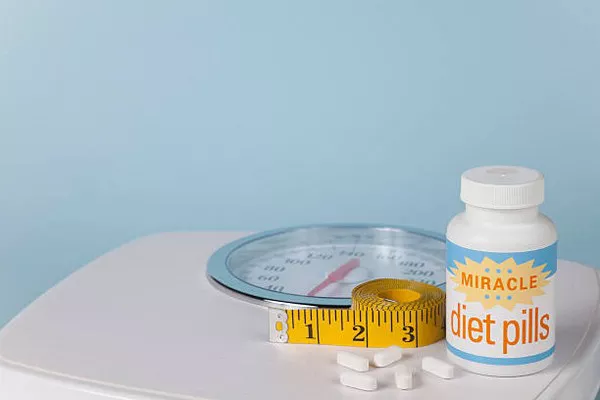Weight loss pills are a popular topic for many seeking to shed pounds quickly. But how effective are they, and how fast can you expect results? In this article, we’ll delve into the world of weight loss pills, exploring their mechanisms, effectiveness, potential side effects, and provide a holistic approach to weight management.
Understanding Weight Loss Pills
What Are Weight Loss Pills?
Weight loss pills are medications designed to help individuals lose weight. They work through various mechanisms, including appetite suppression, fat absorption inhibition, or increasing metabolism. These pills can be prescription-based or available over the counter.
Types of Weight Loss Pills
- Appetite Suppressants: These pills reduce hunger, helping you eat less. Common examples include phentermine and lorcaserin.
- Fat Absorption Inhibitors: These block the absorption of fats from the diet, such as orlistat.
- Metabolism Boosters: These increase your metabolic rate, helping you burn more calories. Examples include certain stimulants and supplements.
- Combination Pills: These blend various mechanisms to enhance overall effectiveness.
How Weight Loss Pills Work
Appetite Suppression
Appetite suppressants alter brain chemistry to reduce hunger signals. They affect neurotransmitters, leading to a decrease in appetite. For example, drugs like phentermine impact the central nervous system to curb cravings.
Fat Absorption Inhibition
Fat absorption inhibitors, such as orlistat, block enzymes that break down fats in the digestive system. This means that a portion of dietary fat is not absorbed and is excreted instead.
Metabolism Enhancement
Some weight loss pills contain stimulants that boost metabolism, increasing the rate at which your body burns calories. This can be achieved through compounds like caffeine or green tea extract.
How Fast Do Weight Loss Pills Work?
Expected Timeframe
The speed at which weight loss pills work can vary significantly based on several factors:
- Type of Pill: Different pills have different mechanisms and timescales. For instance, appetite suppressants may start working within a few days, while fat absorption inhibitors might take weeks.
- Dosage and Adherence: Following the prescribed dosage and regimen is crucial. Deviations can affect results.
- Individual Factors: Your metabolic rate, body composition, and overall health play significant roles in how quickly you see results.
Typical Timeframes
- Appetite Suppressants: You might start noticing reduced appetite within a few days, with visible weight loss in a few weeks.
- Fat Absorption Inhibitors: These can take several weeks to show significant results. Consistent use is key.
- Metabolism Boosters: You might see increased energy levels and slight weight loss within a few days to weeks.
Effectiveness of Weight Loss Pills
Success Rates
Studies have shown varying degrees of success with weight loss pills. While some individuals experience significant weight loss, others may see minimal changes. Success often depends on:
- Consistency: Regular use as prescribed.
- Diet and Exercise: Combining pills with a healthy diet and regular exercise enhances effectiveness.
- Individual Response: Genetic and physiological differences impact results.
Research Findings
Recent studies highlight that weight loss pills can aid in weight management, but they are not a cure-all. For example, clinical trials for orlistat show modest weight loss compared to placebo groups, typically ranging from 5% to 10% of body weight.
See Also: How Long Do Weight Loss Pills Take To Work
Potential Side Effects
Common Side Effects
- Digestive Issues: Fat absorption inhibitors like orlistat can cause oily stools, frequent bowel movements, and abdominal discomfort.
- Nervous System Effects: Appetite suppressants may lead to insomnia, jitteriness, or increased heart rate.
- Allergic Reactions: Some individuals might experience allergic reactions to specific ingredients.
Serious Side Effects
- Cardiovascular Issues: Some weight loss pills can elevate blood pressure or heart rate.
- Mental Health: Certain appetite suppressants may cause mood swings or anxiety.
- Dependency: Prolonged use of some medications can lead to dependency or tolerance.
Integrating Weight Loss Pills with a Healthy Lifestyle
Diet and Nutrition
While weight loss pills can aid in reducing weight, a balanced diet is essential for long-term success. Focus on:
- Whole Foods: Include fruits, vegetables, lean proteins, and whole grains.
- Hydration: Drink plenty of water.
- Portion Control: Be mindful of portion sizes to avoid overeating.
Exercise and Physical Activity
Regular physical activity enhances the effects of weight loss pills and promotes overall health. Aim for:
- Cardiovascular Exercise: Activities like walking, running, or cycling improve heart health and burn calories.
- Strength Training: Incorporate weightlifting or resistance exercises to build muscle mass and boost metabolism.
- Consistency: Regular exercise is crucial for sustainable weight management.
Behavioral Changes
Adopting healthy habits can amplify the benefits of weight loss pills. Consider:
- Mindful Eating: Pay attention to hunger cues and avoid emotional eating.
- Stress Management: Practice stress-reducing techniques like meditation or yoga.
- Sleep: Ensure adequate sleep, as poor sleep can affect weight and metabolism.
Alternative and Complementary Approaches
Herbal Supplements
Some herbal supplements claim to aid in weight loss, such as green tea extract or garcinia cambogia. While these might offer benefits, their effectiveness and safety are often less studied compared to prescription medications.
Medical Supervision
Consulting a healthcare provider before starting any weight loss pill is essential. They can help determine the most appropriate option based on your health condition and weight loss goals.
Lifestyle Modifications
Focusing on comprehensive lifestyle changes, including diet, exercise, and mental well-being, often leads to more sustainable weight loss than relying solely on pills.
Conclusion
Weight loss pills can be a useful tool in managing weight, but they are most effective when combined with a healthy lifestyle. The speed at which they work can vary, with some showing results in days while others take weeks. It’s crucial to approach weight loss with a balanced perspective, incorporating diet, exercise, and behavioral changes to achieve and maintain your goals. Always consult with a healthcare provider before starting any new weight loss regimen to ensure it’s safe and suitable for your individual needs.


